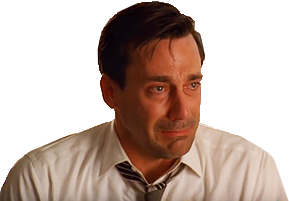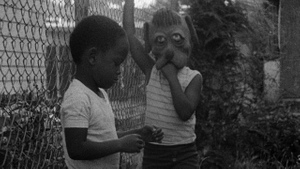 dundis
dundisim ready to put a bet on a melville

watch le doulos and if you don't like it, you can have a $25 criterion gift card to buy some american s***
 im willing to put money on this!!!!
im willing to put money on this!!!!thats not part of

 dundis
dundishell im even more impressed you found a still for that

It was from that Love and Duty you guys sent me
 krillined when I saw it
krillined when I saw it 
 Elric
ElricIt was from that Love and Duty you guys sent me
 krillined when I saw it
krillined when I saw it 
you gon watch le doulos though? potential 25 dollars if u dont like it in exchange for less than 2hrs
gentlemans agreement of course
 RASIE 🦦Oct 3, 2022·1 reply
RASIE 🦦Oct 3, 2022·1 reply iCarly Japan2
iCarly Japan2okay you are allowed to post 15 movies but i wanna see your list

You're better off just going on my LB and filtering my highest rated french language films. Ive seen too many top tier ones to try and wittle it down to 10-15 haha
 RASIE
RASIEYou're better off just going on my LB and filtering my highest rated french language films. Ive seen too many top tier ones to try and wittle it down to 10-15 haha
Damn what happened to the rasie i know?

 RASIE 🦦Oct 3, 2022
RASIE 🦦Oct 3, 2022 iCarly Japan2
iCarly Japan2Damn what happened to the rasie i know?

Lol i told you that doing lists of language films would be nearly impossible

Excluding difficult to categorize options like Purple Noon (1960), The Passenger (1975), and Sans soleil (1983) which are all excellent and could be considered somewhat French for various reasons but not definitively so. For me, French cinema exists for a dramatic 15 years or so (kidding, but also...). I apologize in advance for the lack of Varda
1 Céline and Julie Go Boating (1974)
2 Last Year at Marienbad (1961)
3 Pierrot le fou (1965)
4 The Passion of Joan of Arc (1928)
5 The Discreet Charm of the Bourgeoisie (1972)
6 Amour (2012)
7 Jeanne Dielman, 23 quai du Commerce, 1080 Bruxelles (1975)
8 Au hasard Balthazar (1966)
9 The Battle of Algiers (1966)
10 My Night at Maud's (1969) RASIE 🦦Oct 4, 2022
RASIE 🦦Oct 4, 2022@Victorious_Korea Made it easier on myself by limiting my list to one film per director.
1. Germany Year 90 Nine Zero (1991)
2. Fortini/Cani (1976)
3. French Cancan (1955)
4. Muriel, or the Time of Return (1963)
5. Three Crowns of the Sailor (1983)
6. F for Fake (1973)
7. The Young Girls of Rochefort (1967)
8. Femme Fatale (2002)
9. Secret Defense (1998)
10. Perceval (1978)11. The Mouth Agape (1974)
12. L'Argent (1983)
13. Lost Land (2011)
14. Le Navire Night (1979)
15. Jeune Femme à sa Fenêtre Lisant une Lettre (1983)
16. Sans Soleil (1983)
17. "Ritual in Transfigured Time" (1946)
18. I'm Going Home (2001)
19. Almayer's Folly (2011)
20. The Earrings of Madame de... (1953)21. Vagabond (1985)
22. Moi, un Noir (1958)
23. Sombre (1998)
24. Army of Shadows (1969)
25. Code Unknown (2000)
26. Orpheus (1950)
27. Mauvais Sang (1986)
28. L'Atalante (1934)
29. Bitter Moon (1992)
30. B******s (2013) iCarly Japan2
iCarly Japan2@FlyHiii
@Elric
@humeyno love for cinéma français?
my biggest french phase was way before i was on LB so alot of them aren't logged
 these are my highest ranked as is
these are my highest ranked as is
 Einfinet
EinfinetExcluding difficult to categorize options like Purple Noon (1960), The Passenger (1975), and Sans soleil (1983) which are all excellent and could be considered somewhat French for various reasons but not definitively so. For me, French cinema exists for a dramatic 15 years or so (kidding, but also...). I apologize in advance for the lack of Varda
1 Céline and Julie Go Boating (1974)
2 Last Year at Marienbad (1961)
3 Pierrot le fou (1965)
4 The Passion of Joan of Arc (1928)
5 The Discreet Charm of the Bourgeoisie (1972)
6 Amour (2012)
7 Jeanne Dielman, 23 quai du Commerce, 1080 Bruxelles (1975)
8 Au hasard Balthazar (1966)
9 The Battle of Algiers (1966)
10 My Night at Maud's (1969)you in kino sxn? i dont think i've seen you around
 iCarly Japan2
iCarly Japan2you in kino sxn? i dont think i've seen you around
I don’t post that much anymore but some film threads like this bring me back every now and then…
I wouldn’t consider F for Fake to really be French either but I like it more than some stuff on my list
 maxx
maxxonce i saw a list like this and 8 of 10 movies were about prostitutes and since then ive not been able to stop thinking what the f*** is wrong with the french
disgustingly h**** i’m afraid
 RASIE 🦦Oct 5, 2022·1 reply
RASIE 🦦Oct 5, 2022·1 reply Einfinet
EinfinetI wouldn’t consider F for Fake to really be French either but I like it more than some stuff on my list
Why not?
 RASIE
RASIEWhy not?
well, one doesn’t need to be so rigid when considering what makes a film specific to a particular nation since film is so global. But, unless I am mistaken, the movie isn’t directed by a French person, doesn’t star French ppl, and while France provides one setting, the movie covers a lot of terrain. So, if someone was asking me for French film recs, it wouldn’t feel very representative to me. But that’s just my two cents. Maybe the film is set in, or involves France much more than I can recall
 RASIE 🦦Oct 5, 2022·2 replies
RASIE 🦦Oct 5, 2022·2 replies Einfinet
Einfinetwell, one doesn’t need to be so rigid when considering what makes a film specific to a particular nation since film is so global. But, unless I am mistaken, the movie isn’t directed by a French person, doesn’t star French ppl, and while France provides one setting, the movie covers a lot of terrain. So, if someone was asking me for French film recs, it wouldn’t feel very representative to me. But that’s just my two cents. Maybe the film is set in, or involves France much more than I can recall
I definitely agree that cinema is (and should officially be) considered global media. Though using the director's or performers' nationality, or even the primary language(s) spoken, to define country of origin is a really hit or miss way to go about it since it can get convoluted really quickly. Like Eisenstein spent time making films in Mexico and Italy. Bunuel made films all across Europe. Kiarostami’s final film was made in Japan with French coproduction. The Last Emperor is a film with Chinese actors, directed by an Italian, and solely produced by a British guy. Straub-Huillet are French but made lots of films in German as a conviction to their beliefs regarding language and meaning.
Offically, in the industry, country of origin just comes down to production/primary distributors. It’s why there are countless films that are “French-Spanish-American coproductions” et. al, where multiple countries across the globe are resposible for the film being made and released — and you can say a French-British film is “a French film” because of that. Femme Fatale is an example that was in my list as well: co-production between France and an Iranian producer, the former of which was responsible for most of the backing due to the film’s setting, locations, and major plot scenario taking place at Cannes Film Fest. (Also releasing theatrically across Europe months before it came to the U.S.)
But then you have films like F for Fake, which was produced and initially distributed exclusively by French backers during Welles' extended stay in Europe after nobody in America would touch, let alone fund any of his projects. Fake began as an assignment where Welles was hired by a French director to make a documentary about the charlatan de Hory, and ended up with the French filmmaker’s footage being edited into additonal sequences directed by Welles and shot by the French filmmaker. The film didn't even release in the US until 2 whole years after it first premiered in French theaters.
When it comes to categorizing films by country, I just stick with the industry’s relatively straightforward standard. It’s often messy itself with the number of international co-productions, but it’s easier than parsing the nationalities of the directors, performers, and languages, which can be wildly different, especially when watching things outside of Hollywood’s influence.
 RASIE
RASIEI definitely agree that cinema is (and should officially be) considered global media. Though using the director's or performers' nationality, or even the primary language(s) spoken, to define country of origin is a really hit or miss way to go about it since it can get convoluted really quickly. Like Eisenstein spent time making films in Mexico and Italy. Bunuel made films all across Europe. Kiarostami’s final film was made in Japan with French coproduction. The Last Emperor is a film with Chinese actors, directed by an Italian, and solely produced by a British guy. Straub-Huillet are French but made lots of films in German as a conviction to their beliefs regarding language and meaning.
Offically, in the industry, country of origin just comes down to production/primary distributors. It’s why there are countless films that are “French-Spanish-American coproductions” et. al, where multiple countries across the globe are resposible for the film being made and released — and you can say a French-British film is “a French film” because of that. Femme Fatale is an example that was in my list as well: co-production between France and an Iranian producer, the former of which was responsible for most of the backing due to the film’s setting, locations, and major plot scenario taking place at Cannes Film Fest. (Also releasing theatrically across Europe months before it came to the U.S.)
But then you have films like F for Fake, which was produced and initially distributed exclusively by French backers during Welles' extended stay in Europe after nobody in America would touch, let alone fund any of his projects. Fake began as an assignment where Welles was hired by a French director to make a documentary about the charlatan de Hory, and ended up with the French filmmaker’s footage being edited into additonal sequences directed by Welles and shot by the French filmmaker. The film didn't even release in the US until 2 whole years after it first premiered in French theaters.
When it comes to categorizing films by country, I just stick with the industry’s relatively straightforward standard. It’s often messy itself with the number of international co-productions, but it’s easier than parsing the nationalities of the directors, performers, and languages, which can be wildly different, especially when watching things outside of Hollywood’s influence.
The charlatan de Hory
 a proud fraud exposing a fraudulent industry
a proud fraud exposing a fraudulent industry 
 RASIE 🦦Oct 5, 2022
RASIE 🦦Oct 5, 2022 Elric
ElricThe charlatan de Hory
 a proud fraud exposing a fraudulent industry
a proud fraud exposing a fraudulent industry 
The picasso blinds and ass oggling sequence

